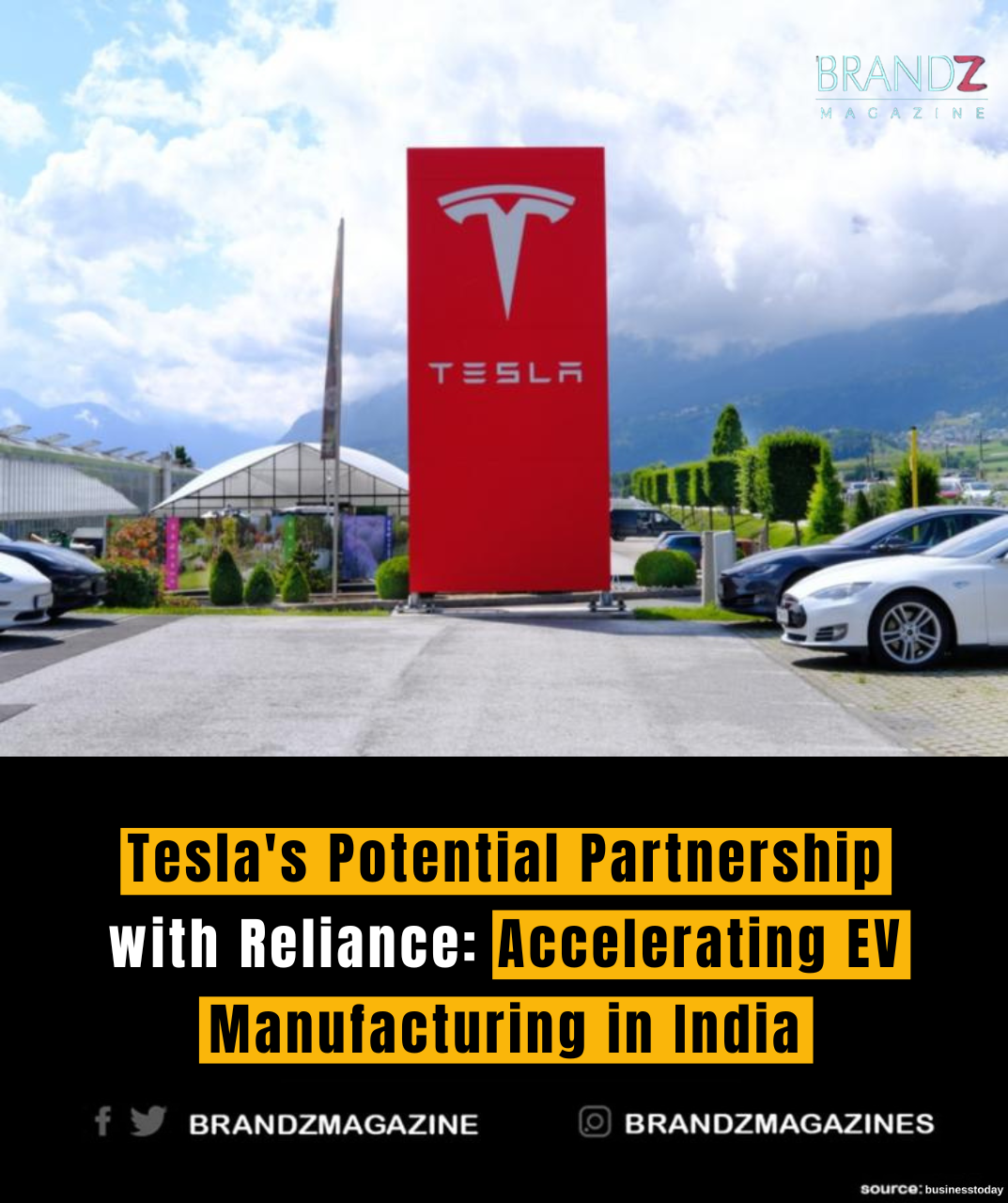
In a significant development for the Indian automotive industry, Tesla is reportedly exploring a partnership with Reliance Industries Limited (RIL) to establish an Electric Vehicle (EV) manufacturing unit in India. This potential collaboration marks a strategic move by both companies to leverage their strengths and contribute to India’s rapidly evolving electric mobility landscape.
Tesla, led by visionary entrepreneur Elon Musk, has been at the forefront of the global electric vehicle revolution. With a focus on sustainable transportation and cutting-edge technology, Tesla has garnered a massive following and disrupted traditional automotive paradigms. The company’s entry into the Indian market has been highly anticipated, given the country’s ambitious goals for electric mobility adoption.
On the other hand, Reliance Industries, under the leadership of Chairman Mukesh Ambani, is a diversified conglomerate with a strong presence in sectors such as energy, telecommunications, and retail. Reliance’s expertise in manufacturing, infrastructure development, and market reach makes it a strategic partner for Tesla’s expansion plans in India.
The proposed partnership between Tesla and Reliance holds immense potential to drive the growth of the EV ecosystem in India. By leveraging Tesla’s technology prowess and Reliance’s manufacturing capabilities, the collaboration aims to establish a state-of-the-art EV manufacturing unit that can cater to the growing demand for electric vehicles in the country.
India, with its ambitious targets for electric vehicle adoption and green mobility initiatives, presents a lucrative market for Tesla and other EV manufacturers. The government’s push for electric mobility, coupled with incentives and policy support, has created a conducive environment for investments in the EV sector.
The potential partnership between Tesla and Reliance is not just about manufacturing electric vehicles but also about creating a robust ecosystem that includes charging infrastructure, battery technology, and sustainable practices. This holistic approach is essential for the widespread adoption of electric vehicles and addressing challenges such as range anxiety and infrastructure gaps.
Furthermore, the collaboration is expected to drive job creation, skill development, and technology transfer, contributing to India’s economic growth and technological advancement. It also aligns with India’s vision of becoming a global hub for electric vehicle manufacturing and innovation.
As discussions progress between Tesla and Reliance, stakeholders across the automotive industry, government, and environmental advocates are closely watching the developments. The potential partnership holds the promise of accelerating India’s transition to a greener, cleaner, and more sustainable transportation future.
In conclusion, Tesla’s potential partnership with Reliance for an EV manufacturing unit in India signifies a significant step forward in the country’s electric mobility journey. It reflects the collaborative spirit of industry leaders coming together to drive innovation, sustainability, and economic progress.

